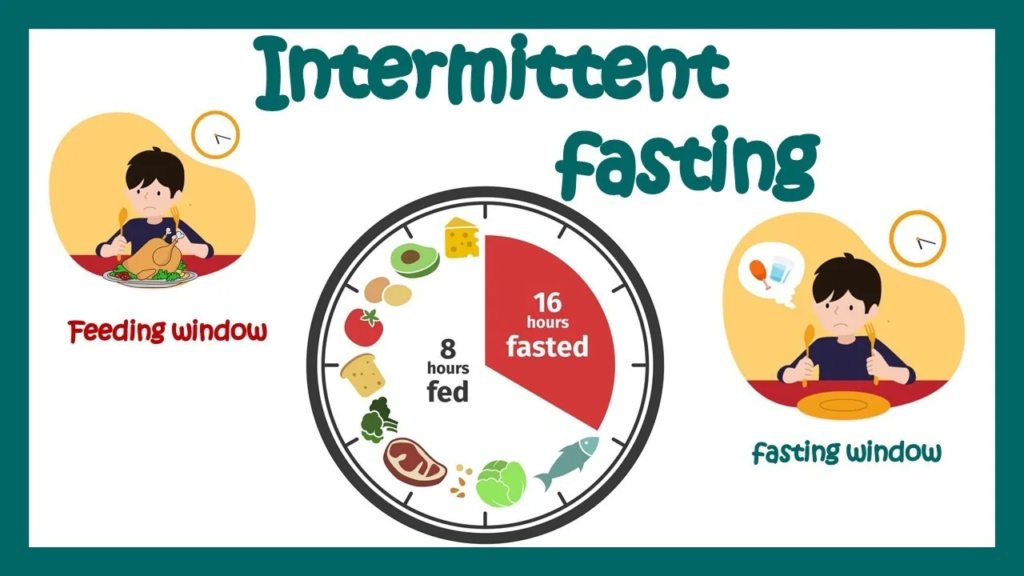Researchers found that individuals who consumed all their meals within an 8-hour fasting window each day had a 91% higher risk of mortality due to heart disease and weight loss.
Intermittent fasting, a dietary practice involving alternating eating and fasting periods, has garnered significant attention in contemporary times. Its rise in popularity can be attributed to its appeal to fitness enthusiasts, weight loss seekers, and individuals looking to improve metabolic health. There are diverse variations of intermittent fasting methods, such as the 16/8 method, the 5:2 diet, or alternate-day fasting. However, it is crucial for individuals considering this approach to seek guidance from healthcare professionals or nutrition experts to ensure its suitability for their specific needs and health conditions.

In Short
- Consuming all meals within an 8-hour window daily increases the likelihood of succumbing to heart disease.
- Initial research indicated that time-restricted eating did not lower the risk of mortality from any cause.
- The study is constrained by its reliance on self-reported dietary information, which limits the data’s accuracy.
Despite the widespread adoption of intermittent fasting, concerns persist about the potential health risks linked to incorrect implementation of fasting regimens. Recent research presented at an American Heart Association session in Chicago on cardiometabolic health has highlighted a previously overlooked aspect. A preliminary study has uncovered a troubling association between intermittent fasting and an elevated risk of heart disease-related mortality. These findings emphasize the importance of making balanced and informed dietary choices, underscoring the significance of evidence-based recommendations when navigating the complexities of intermittent fasting for optimal health.
According to the study, which involved researching over 20,000 adults in the United States with an average age of 49 years, the findings suggest that practicing intermittent fasting with an eight-hour eating window could potentially lead to a 91 per cent increase in the risk of death from cardiovascular disease. This implies that individuals who restrict their eating to an eight-hour window and fast for the remainder of the day may face a significantly higher risk of mortality from cardiovascular conditions, compared to those who spread their meals across a 12 to 16-hour timeframe.
Many individuals who practice intermittent fasting often follow the 16:8 eating pattern, where they fast for 16 hours and have an eight-hour window for eating, which is usually scheduled at particular times of the day. This approach has different variations, such as condensing the eating period to just four hours or extending it to 12 hours. This specific type of intermittent fasting, known as time-restricted eating, aims to optimize the benefits of fasting within a set timeframe.
According to a statement released by the American Heart Association, previous studies have found that time-restricted eating, a dietary approach that involves limiting intake to a specific number of hours each day, has shown promising results in improving various cardiometabolic health measures. These include enhancements in blood pressure regulation, blood glucose levels, and cholesterol profiles among individuals adopting this eating pattern.
Additional discoveries
The study revealed that restricting food intake while restricting fewer than food intake to fewer than eight hours daily did not show than eight hours a day did not show a correlation with extended lifespan compared to eating within a 12 to 16-hour window, the research revealed a heightened risk of cardiovascular disease mortality among patients with heart disease or cancer.
For individuals with preexisting cardiovascular disease, a study found that having an eating window of eight to 10 hours was associated with a 66% higher risk of mortality due to heart disease or stroke weight loss. This suggests that the duration of the eating window may have implications for the health outcomes of individuals with cardiovascular conditions.
Cancer patients who maintained an eating window exceeding 16 hours daily exhibited a reduced risk of cancer-related mortality. A crucial discovery highlighted that time-restricted eating did not diminish the general risk of all-cause mortality. Zhong emphasized the importance for individuals with conditions like cancer or heart disease to recognize the association between an eight-hour eating window and a heightened likelihood of cardiovascular-related death.
However, Zhong emphasized that while the study highlighted a connection between an eight-hour eating window and the risk of cardiovascular death, it’s important to note that this association does not imply causation. Time-restricted eating, despite its link to cardiovascular risks identified in the study, should not be solely held responsible for instances of cardiovascular death.
Study Limitations and Future Research Possibilities
One limitation of the study was the reliance on self-reported dietary data, which lacked guaranteed accuracy due to being memory-based. The authors highlighted the need for future research to delve into the biological mechanisms underpinning the associations between various time-restricted eating patterns and negative cardiovascular outcomes.
Additionally, further studies could be undertaken to investigate whether the outcomes exhibit similarities among individuals residing in diverse regions across the globe.
Also Read: newzvilla